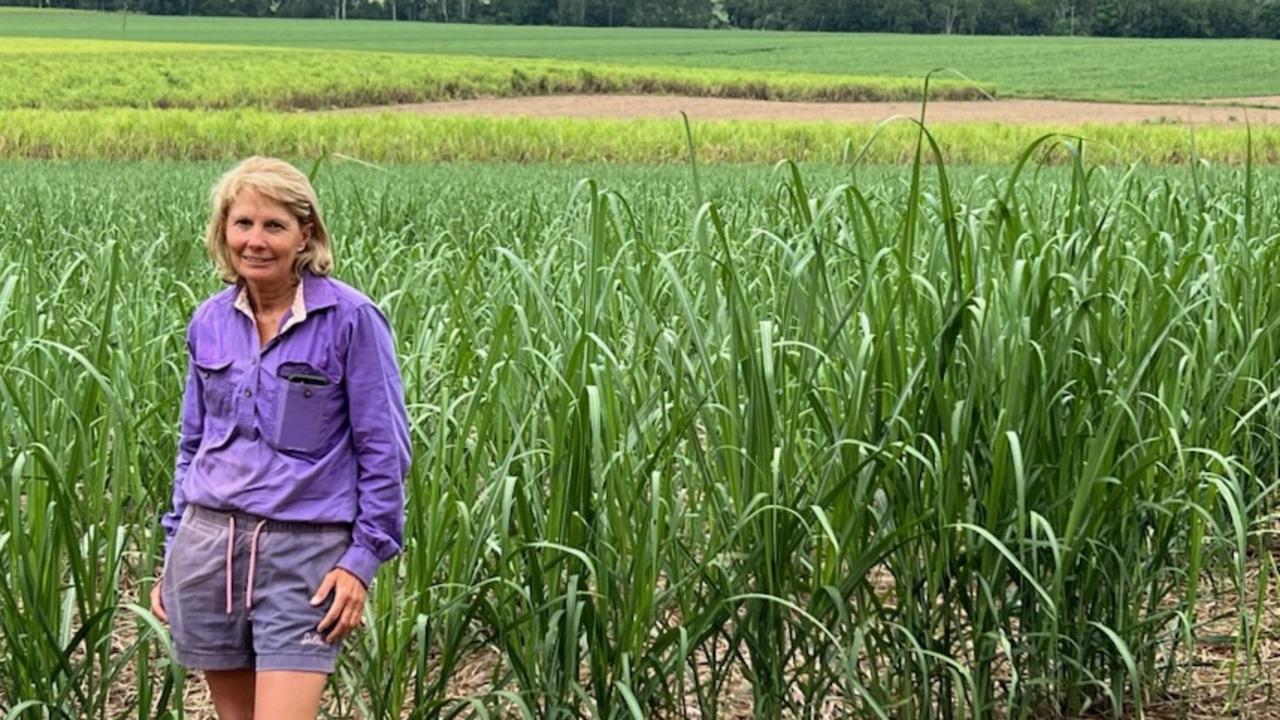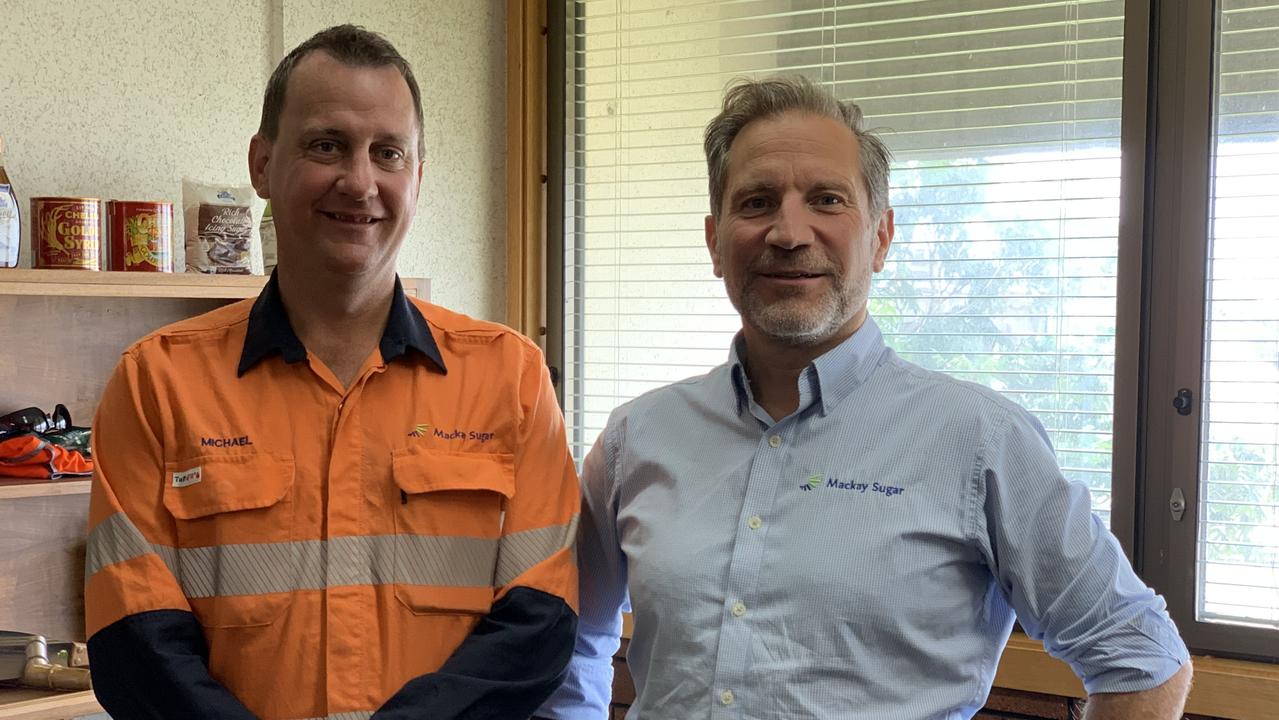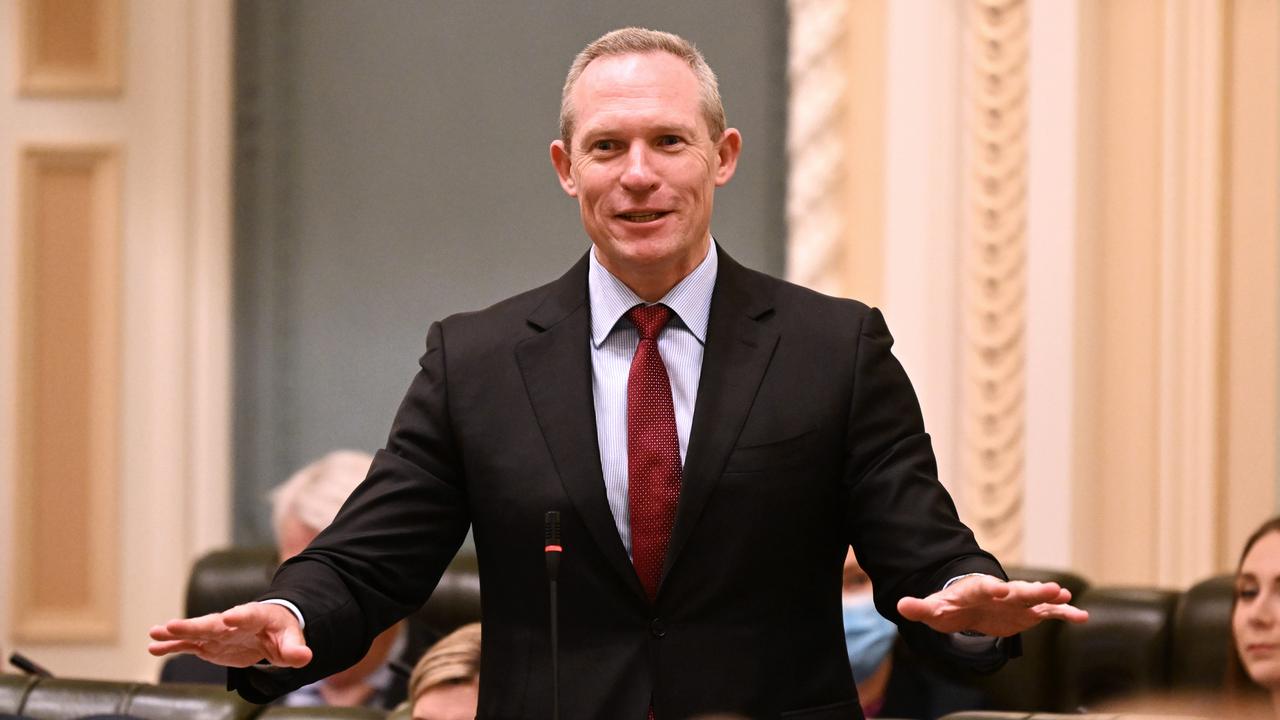Mackay sugar growers urge microgrid for cheap, clean power
Electricity is going up for everyone but a group of Mackay canegrowers and millers have a simple idea to lower their bills. Here’s how it works.
Business
Don't miss out on the headlines from Business. Followed categories will be added to My News.
Sharply rising electricity prices are battering Queensland’s sugar growers, but farmers and millers in the Mackay region reckon they have the solution: a virtual microgrid.
Judy Pownall runs a cane farm in the Pioneer Valley and said the microgrid would be a “win-win” for growers, millers and taxpayers.
“It would make electricity and water much more affordable,” she said.
At present, she buys electricity from Ergon Energy – the only energy retailer available to farmers in North Queensland – to power her irrigation.
A virtual grid would permit millers with energy production capabilities to sell power directly to growers, taking on the role of energy retailers as well as generators.

Ms Pownall said a pivot pass, a mobile irrigation technique, cost her about $560 but if she could draw energy directly from the nearby Racecourse Mill, her bill could drop to below $200.
Mackay Sugar’s Racecourse mill boasts a 38MW station that uses bagasse, a natural by-product of the milling process, to fire boilers and create high-pressure steam, which powers a turbine connected to a 66kV link.
The green energy connects to the Glenella substation and provides enough electricity for about 30 per cent of the Mackay region.
Mackay Canegrowers deputy chairman and Pioneer Valley Water chairman Joseph Borg said growers were in discussions with the state government about setting up a microgrid but the proposal was still in its infancy.
“At the current time it can’t be done because of legislation but certainly canegrowers are speaking to the state government and the state government is certainly interested in the microgrid proposition,” Mr Borg said.
Mackay Sugar is not classified as a retailer and so legislation prohibits it from selling energy directly to consumers.
Mr Borg said “lines of communication” were open including to Energy Minister Mick de Brenni.
“He never canned the idea,” Mr Borg said.
“He was happy to talk about it.”
Mr Borg said electricity prices for irrigation were starting to get “out of control”.
“It is cutting our bottom line,” he said.
“Our operational costs are just going through the roof basically based totally on electricity charges.”
The proposed virtual grid would tap into pre-existing state-owned infrastructure such as poles and wires rather than build out new physical assets.
Mr Borg said it would lower prices for growers but only if they could manage costs associated with using state-owned poles and wires.
“It (the microgrid) would lower prices assuming the cost for using the poles and wires is kept low by the government,” he said.
“That ultimately is the killer.
“You are still using the same poles and wires, you are not putting new ones in.”

For Mackay Sugar CEO Jannik Olejas and head of projects Michael O’Hara, establishing a virtual grid is a political problem rather than a technical issue.
“We have great infrastructure, we basically have a connection from the generator ourselves to each and every farmer, to each and every pump,” Mr Olejas said at the Racecourse Mill.
“Now it is just a matter of we have a lot of retailers and a lot of legislation which prohibits us from basically delivering that into the growers.”
Mr O’Hara alleged there was a substantial gap between the wholesale and retail price.
“They (cane farmers) are paying about a ten-fold mark up on what we sell it for to what they import it for,” he said.

Mr Olejas said while Ergon might lose out from a microgrid, the benefits to society would escalate with lower power bills for pumps leading to more irrigation, which would in turn lead to more cane and more bagasse and from the bagasse, more electricity.
“We basically have a perfect circular economy,” Mr Olejas said.
Mr Olejas raised the prospect of paying a transmission fee for the use of pre-existing infrastructure.
The government hopes to guide Queensland onto a renewables base through its Energy and Jobs Plan and Mr de Brenni said “growers, graziers and bioenergy generators” would play a crucial role in the state’s clean energy transition.
“It (the plan) also acknowledges that canegrowers are significant energy consumers,” he said.
“Through our plan we are building more clean, cheap, and secure energy that breaks away from the fast-rising cost of fossil fuel power electricity and liquid fuels, including mineral diesel.”

Mr de Brenni also said the government would put money into pilot microgrids through a $10m fund.
“The Department of Energy and Public Works is currently developing guidelines and eligibility requirements for the fund, with the guidelines expected to be released by the end of 2022,” he said.
“Canegrowers, or sugar mills, are welcome to apply if eligibility requirements are met.”
For Mrs Pownall, a new arrangement in the Pioneer Valley can’t come soon enough.
“If the Queensland government would change some rules and let the cogeneration happen, it means then we grow more cane,” she said.
“Ergon may lose out on some electricity costs, but overall cane farmers grow more cane, more profitable, more taxes, Mackay Sugar employs more people, can generate more electricity because they have more cane, bagasse, and then the Queensland government can access more renewable energy.”
More Coverage
Originally published as Mackay sugar growers urge microgrid for cheap, clean power









